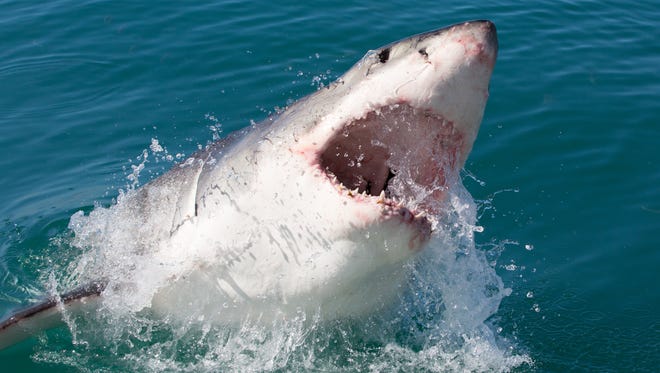Size matters: Larger sea animals at higher extinction risk

It pays to be a small fish in the big ocean: The larger the fish or marine animal, the greater risk it will become extinct, a new study says. And human fishing and preference for larger species is likely the primary cause.
More worrisome, this extinction is unlike previous mass annihilations, when smaller creatures tended to be more likely to die off, and "may disrupt ecosystems for millions of years," the research found.
“What's happening now is really different from what has happened in oceans in the past,” said Jonathan Payne, a paleobiologist at Stanford University and study lead author.
Researchers examined fossil records of nearly 2,500 examples of both extinct and current sea creatures for the study, which was published Wednesday in the peer-reviewed journal Science. Vulnerable or threatened species in the report include the great white shark, the blue whale and the Pacific bluefin tuna.

The new pattern is unprecedented in the history of life in Earth’s oceans, and is different from the five major extinction events of the past 550 million years, the study says. A similar situation, however, did happen on land, Payne said, citing the example of the woolly mammoth, which humans likely hunted to extinction thousands of years ago.
The extinction of larger animals could have serious repercussions on the health of marine ecosystems by disrupting the entire food chain, scientists say.
The research focused primarily on threats caused by fishing and not specifically on man-made climate change, which has caused its own stressors such as warmer and increasingly acidic oceans.
There is hope of reversing the startling new pattern, Payne said.
"There is still time for humans to change their behavior," he said. “We can’t do much to quickly reverse the trends of ocean warming or ocean acidification, which are both real threats that must be addressed. But we can change treaties related to how we hunt and fish."
Fish populations also have the potential to recover faster than climate or ocean chemistry, he added. “We can turn this situation around relatively quickly with appropriate management decisions at the national and international level.”
